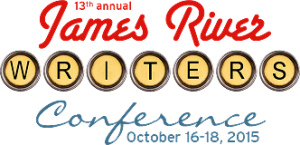Kris Spisak's Blog, page 41
August 18, 2015
Wednesday Writing Tip #133: “Awhile” vs. “A While”

Stay awhile, won’t you?
The trouble with understanding “awhile” vs. “a while” is that their meanings are so gosh darn close that it’s easy to get it wrong. I hate explaining my writing tips by arguing purely about parts of speech, but that’s largely what’s at play here.
“Awhile” is an adverb meaning “for a short time” (e.g., they relaxed awhile by the water then made dinner).
“A while” is an article plus a noun referring to a length of time (e.g. It’s been a while since they visited the lake house).
If you’re stuck with which one to use, think about whether you could swap it out for another adverb (e.g., they relaxed happily/dramatically/ ridiculously by the water). If that doesn’t make sense, think about whether you could swap it out for another duration of time (e.g., it’s been a decade / a day / a year since they visited).
This adverb-noun conundrum baffles time and time again. But I have faith you can get it right. Understanding may take a while, but you’ll get there.
The post Wednesday Writing Tip #133: “Awhile” vs. “A While” appeared first on Kris Spisak.
August 12, 2015
Wednesday Writing Tip #132: Complement vs. Compliment
 I would like to give a compliment to you. Perhaps it’s your fabulous grammar know-how. Perhaps it’s your bravery to tackle the sometimes nonsensical English language head-on. Perhaps it’s your awesome earrings. (Where did you get them? Can I borrow them sometime?)
I would like to give a compliment to you. Perhaps it’s your fabulous grammar know-how. Perhaps it’s your bravery to tackle the sometimes nonsensical English language head-on. Perhaps it’s your awesome earrings. (Where did you get them? Can I borrow them sometime?)
Whatever the reason, remember my first sentence: “I would like to give a compliment.”
If you are looking for the word meaning an expression of praise or admiration, you’re looking for a word with an “i” in it: compliment.
If you are looking for the word meaning something that completes, balances, or pairs well with something else, you’re looking for the form with an “e”: complement.
So if I just complimented you on your earrings, I could note that they complement the necklace that you’re wearing. Or perhaps the sparkle of sun on the Venice canals. Either way, you get the idea.
The post Wednesday Writing Tip #132: Complement vs. Compliment appeared first on Kris Spisak.
August 4, 2015
Wednesday Writing Tip #131: Hone vs. Home

Okay, sure, the ornithologists in the crowd might call me out on the fact that this is not a picture of a homing pigeon.
Anyone else always call the carrier birds used as little avian messengers “honing pigeons”? No? Me neither. That would be silly.
Why would it be silly? Because while “hone” and “home” are commonly confused, they are two distinct words.
Hone – (verb) to sharpen, perfect, or make more acute.
Home – (verb) to aim toward a destination with accuracy.
You can hone a skill. A falcon might home in on its prey. One could hone a knife before whittling. A missile might home in on a target.
You shouldn’t ever “hone in on something.” There’s an implied target there, so “home” is the correct word you’re looking for. Pigeons or no pigeons.
The post Wednesday Writing Tip #131: Hone vs. Home appeared first on Kris Spisak.
July 28, 2015
Wednesday Writing Tip #130: “To” vs. “Two” vs. “Too”

For the love of grammar, please get this one right, folks!
When we type quickly, our fingers sometimes get spelling amnesia. That’s my theory, and I’m sticking two too to it.
Take the time to edit yourself, and remember the spellings you learned a long, long time ago:
To – most commonly a preposition (e.g., from here to there; east to west; pedal to the metal)
Two – a noun or an adjective, what one plus one equals
Too – an adverb, meaning “also” or “extremely”
Are there more subtleties to these words? Sure. But we’re not getting into those here. Just remember the basics, and please don’t just rely on spell-check. Spell-check isn’t always your friend.
The post Wednesday Writing Tip #130: “To” vs. “Two” vs. “Too” appeared first on Kris Spisak.
July 21, 2015
Wednesday Writing Tip #129: Flesh Out vs. Flush Out

On the brink of genius, sometimes a kid just needs a little help getting the ideas out. (Flushing out brilliance? I don’t think so.)
If you’re trying to flush out an idea, are you trying to scare it out of hiding? Is that really what you mean? Maybe in some sort of complex psychotherapy that is beyond me, this makes sense, but I’m guessing that wasn’t what you were going for.
“To flush out” is an expression that originates in bird hunting. Perhaps dogs could help flush out the quail, to get them to leave their hiding spaces.
“To flesh out” means to give substance to. If you had a skeleton of an idea, you could flesh it out to give it weight.
Personally, I smile every time I see people writing that they are “flushing out” their thinking. Our ideas can be sly sometimes, I suppose. We have to get at them however we can. Who am I to judge?
Just make sure you know what you’re saying, folks.
The post Wednesday Writing Tip #129: Flesh Out vs. Flush Out appeared first on Kris Spisak.
July 14, 2015
Wednesday Writing Tip #128: Mute vs. Moot

Say it with me. “Moot. Moooooot.” (Does seeing the cow help?)
Make sure you know what you’re saying before you start arguing something is a “mute point.” Please. Let’s tackle this one for the sake of lawyers and grammarians everywhere.
If you’re looking for the term for when something isn’t relevant anymore, you’re looking for “moot.” If you’re looking for the term for silencing the tv, you’re looking for “mute.”
I see the rough logic in calling something a “mute point,” as in perhaps it’s not valuable because it’s so darn quiet and presumably unimportant. But that’s not the expression, folks. You might just be snickered at for using this phrase. And I’m not talking about lawyers. Grammarians have their rude days. Cows too actually (they have a great handle on this one, I think: “Mooooot.”)
Sure, there’s a lot going on in our lives, but using the correct words isn’t a moot point. At least when you’re not on mute. Right?
The post Wednesday Writing Tip #128: Mute vs. Moot appeared first on Kris Spisak.
July 10, 2015
Register Today! – “Nuts & Bolts: Editing your Work like a Pro”
 Maybe your story is brilliant, but even the best of tales can use some spit and polish to make it shine. What are common writing weaknesses that make publishers cringe? What are widespread word-usage or punctuation blunders that cause agents to say “thanks, but no thanks”? What can cause readers to stop reading before they’ve even really gotten started?
Maybe your story is brilliant, but even the best of tales can use some spit and polish to make it shine. What are common writing weaknesses that make publishers cringe? What are widespread word-usage or punctuation blunders that cause agents to say “thanks, but no thanks”? What can cause readers to stop reading before they’ve even really gotten started?
There’s a difference in a first draft and a finely edited manuscript. Learn specific techniques and editing notes to apply to your writing from a professional editor whose clients have moved forward to acquire literary agents and hit Amazon best-seller lists.
Kris’s Master Class at the James River Writers Conference is filling fast, so register today!
The post Register Today! – “Nuts & Bolts: Editing your Work like a Pro” appeared first on Kris Spisak.
July 7, 2015
Wednesday Writing Tip #127: Accept vs. Except

A peacock’s feathers are indeed exceptional. Oh, did I just throw you a curve ball?
The English language is full of exceptions that we have to accept. Should we dub them “acceptions” (exceptions that you have to accept even when they annoy you)? Okay, maybe I made that up, and maybe it’s not as clever as it was in my head. Let’s just stick to basics here.
There is a clear difference between “accept” and “except,” and it’s more than just the first two letters.
Accept (think “acceptance”) – a verb meaning “to consent to receive something” or “to come to see something as suitable/valid/right.”
Except (think “exception”) – a preposition meaning “not including” or “other than”; a verb meaning “to exclude” or “to omit.”
I’m pretty sure we know the difference on this one and just write too quickly sometimes. I’m pretty sure. That’s what I tell myself anyhow. You surely won’t make that mistake anymore, right?
The post Wednesday Writing Tip #127: Accept vs. Except appeared first on Kris Spisak.
July 1, 2015
Wednesday Writing Tip #126: Alot vs. A Lot vs. Allot

Zebras have a lot of stripes, but I don’t think a specific number is allotted to them.
“Alot” isn’t a word, people. Just save your writing dignity (and the headaches of the grammar-picky) and add a space in there. It’s not that hard. Look, I just did it. There I did it a few more times. Wow. I’m awesome at this.
Okay, I digress…
If you like something bunches, you like it a lot. Two words. A lot.
Allot is indeed a word, meaning to give or to allocate a share of something, but I’m still pretty sure that’s not the one you’re misspelling.
Unless it’s a hashtag, put that space in there, folks. We’ll all be the better for it. #Grammarrocks #alot
The post Wednesday Writing Tip #126: Alot vs. A Lot vs. Allot appeared first on Kris Spisak.
June 23, 2015
Wednesday Writing Tip #125: Inquire vs. Enquire

Some inquiries are indeed more formal than others.
Inquiring minds want to know: is there a difference between “inquire” and “enquire”? A difference in “inquiry” and “enquiry”? Which one flows off of your tongue… or… should I say… keyboard?
If you’re looking for a subtle distinction, there is one (ooh, a teaser…), but in almost all cases, the words are interchangeable. The biggest difference is that “inquire” and “inquiry” are more common in the U.S. and “enquire” and “enquiry” are more common in British English.
To some across the pond, “to enquire” means to ask more generally, and “to inquire” has more of a link to a formal investigation of some sort; however, if you’re Stateside, I wouldn’t really worry about this. Stick to “inquire” and “inquiry” for all uses, and you’ll be just fine.
The post Wednesday Writing Tip #125: Inquire vs. Enquire appeared first on Kris Spisak.



